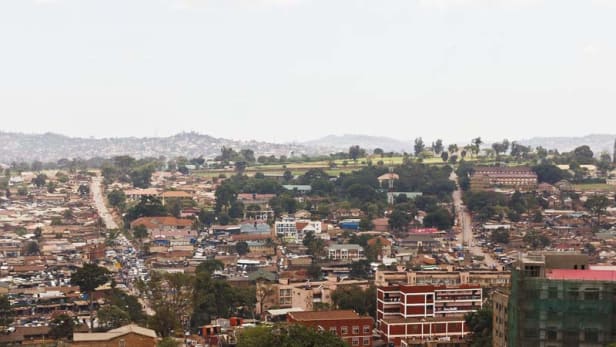By Sophie Edwards
 |
| A view of Kampala, Uganda. Photo by: Mike Freedman / CC BY-NC-ND |
Cities in sub-Saharan Africa are among the most expensive in the world for businesses, relative to income levels, and will remain “closed to the world” unless policymakers reform urban land markets and invest in infrastructure, a new report by the World Bank has found.
The number of people living in sub-Saharan African cities is growing rapidly: An additional 187 million people are expected to live in urban areas by 2025, the equivalent of the entire population of Nigeria. However, the economies in these cities are not keeping pace because they are crowded, disconnected and costly, according to “Africa’s Cities: Opening Doors to the World,” a report published today.
These factors make cities such as Lagos in Nigeria, Dar es Salaam in Tanzania, and Kampala in Uganda relatively unattractive to investors and entrepreneurs, meaning they produce few goods and services for trade on global and regional markets, the report finds.
“What Africa needs are more affordable, connected, and livable cities,” said Makhtar Diop, World Bank vice president for Africa. “Improving the economic and social dividends from urbanization will be critical as better developed cities could transform Africa’s economies.”
The report proposes a number of reforms, including formalizing land markets, clarifying property rights and instituting effective urban planning, as well as investing more in physical and institutional infrastructure.
The way African cities have been built and organized has led to people living in smaller, fragmented neighborhoods that lack good and affordable transportation to connect people to jobs. Cities in Africa are significantly more fragmented than those in Asia and Latin America, which is a major factor preventing urban areas from reaching their economic potential, the report finds.
The authors state that “Without either high physical density or adequate connective infrastructure, an urban area falls short of its potential: it cannot offer firms the cost efficiencies and job matching advantages that open a city’s doors to regional and global trade.”
High costs of living are also making African cities unattractive to companies looking to set up businesses. Housing, food and transport in a sub-Saharan African city cost, on average, nearly 30 percent more than in other regions with similar income levels. African urban dwellers pay 55 percent more for housing and 35 percent more for food.
These higher living costs mean that companies need to pay higher wages, making them less competitive than their global rivals. As a result, companies tend to remain local in scope, missing out on global trading opportunities, and also passing higher costs on to their local customers.
To address these issues, the World Bank is calling on African leaders to implement policy and investment reforms to move cities in a more globally competitive direction.
“What cities do now will determine their shape and efficiency not just for years to come, but for decades or even centuries,” said Ede Ijjasz-Vasquez, senior director of the World Bank’s Social, Urban, Rural and Resilience Global Practice.
This means implementing policies to strengthen institutions that govern land markets in these cities, which will enable them to clarify and formalize property and land rights, update regulations and make developing land more efficient and attractive. The World Bank also urges African leaders and investors to put money into “early and coordinated infrastructure investments” to increase productivity, liveability and affordability.
The development finance institution says it will support these reforms through a variety of activities, including offering financial instruments such as guarantees to help attract other sources of nongovernmental funding, in order to “meet the magnitude of the investment challenge going forward.”

No comments:
Post a Comment